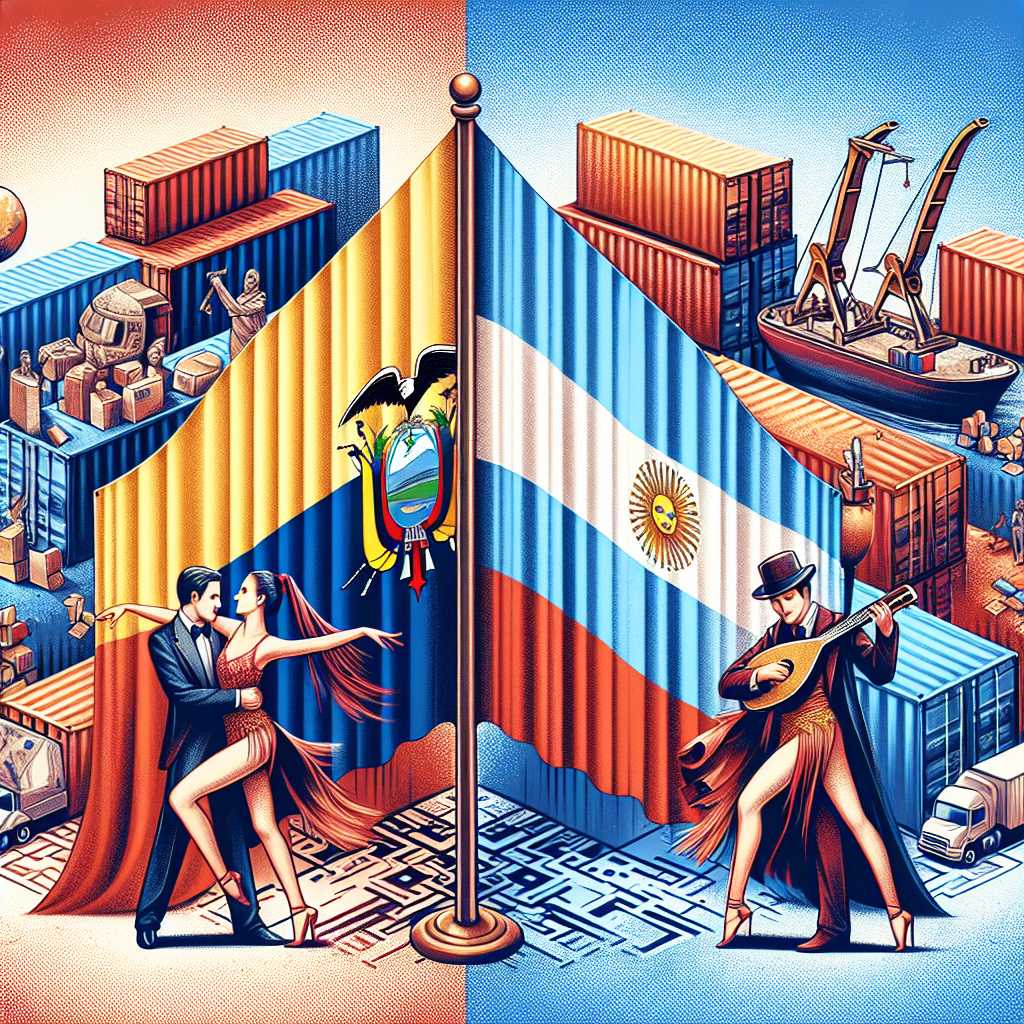Understanding the Relationship Between Argentina and Ecuador
The relationship between Argentina and Ecuador is multifaceted, encompassing diplomatic, economic, cultural, and social dimensions. As countries in South America, both nations shape regional dynamics and partake in a variety of bilateral and multilateral engagements, fostering cooperation.
Diplomatic Interactions: Historical Context and Modern Developments
The diplomatic relationship between Argentina and Ecuador is a deep-rooted one. Historically, after achieving independence from Spain, both countries became part of the international community of states in the 19th century. They have since established formal diplomatic ties and have often supported each other on various regional and international platforms.
In contemporary settings, Argentina and Ecuador are members of the Union of South American Nations (UNASUR) and the Community of Latin American and Caribbean States (CELAC), which promote integration and unity in the region. These frameworks provide grounds for cooperation on issues such humanitarian aid, defense, health initiatives, and cultural exchanges.
Recent years have witnessed agreements between Argentina and Ecuador that aim to consolidate economic ties and enhance joint projects within various sectors such as education, science, technology, and the environment.
Economic Ties: Trade and Investment
Economic collaboration between Argentina and Ecuador signifies a critical component of their relationship. While Argentina boasts a diverse economy with strong agriculture, manufacturing, and service sectors, Ecuador relies more heavily on commodities such as oil and agricultural products.
Trade between both countries involves the exchange of these various products. Argentine exports to Ecuador typically include pharmaceuticals, machinery, and agricultural products like cereals and vegetable oils. Conversely, Ecuadorian exports to Argentina mainly comprise crude oil along with bananas, flowers, and coffee.
Investment flows between the countries have been encouraged due to mutual interest in enhancing economic growth. In recent years, there have been efforts from businesses in both nations to explore investments in sectors like agriculture, renewable energy, infrastructure development, tourism and technology.
Cultural Exchanges: The Social Fabric Connecting People
Cultural ties between Argentina and Ecuador are promoted through various initiatives that aim to strengthen social bonds between the people of both countries. These include artistic collaborations, literature exchanges, gastronomy festivals, academic planning, student exchanges, and reciprocal participation in festivals or artistic events across both nations.
Languages in both countries stem from their common colonial past; while Spanish is predominantly spoken in each nation, indigenous languages also play a part in their cultural heritage. Programs to celebrate indigenous knowledge systems and languages have seen joint efforts between Argentinian and Ecuadorian cultural organizations.
Environment & Conservation Efforts: Shared Responsibility for Sustainability
As countries located on the biodiverse continent of South America, Argentina and Ecuador partake in several environmental agreements highlighting their commitment to conservation practices. From protecting the Amazon Basin – which transcends national boundaries – to addressing climate change impacts on the Andes mountain regions, bilateral actions have been imperative.
Both nations recognize their role in fostering sustainable environments. Initiatives concerning sustainable agriculture, protection for endangered species, ecosystem services valuation, forest management policies and climate adaptation strategies are fields of common interest where Argentina and Ecuador collaborate.
Strategic Initiatives: Defense and Security Collaboration
Defense and security matters also form an essential part of the Argentina-Ecuador relationship. Both nations work collaboratively to face challenges related to drug trafficking, organized crime, cyber-security threats, as well as to carry out humanitarian missions.
Joint military exercises, sharing of intelligence reports, security training programs, weapons development projects are areas where both defense sectors interact systematically to maintain regional stability.
